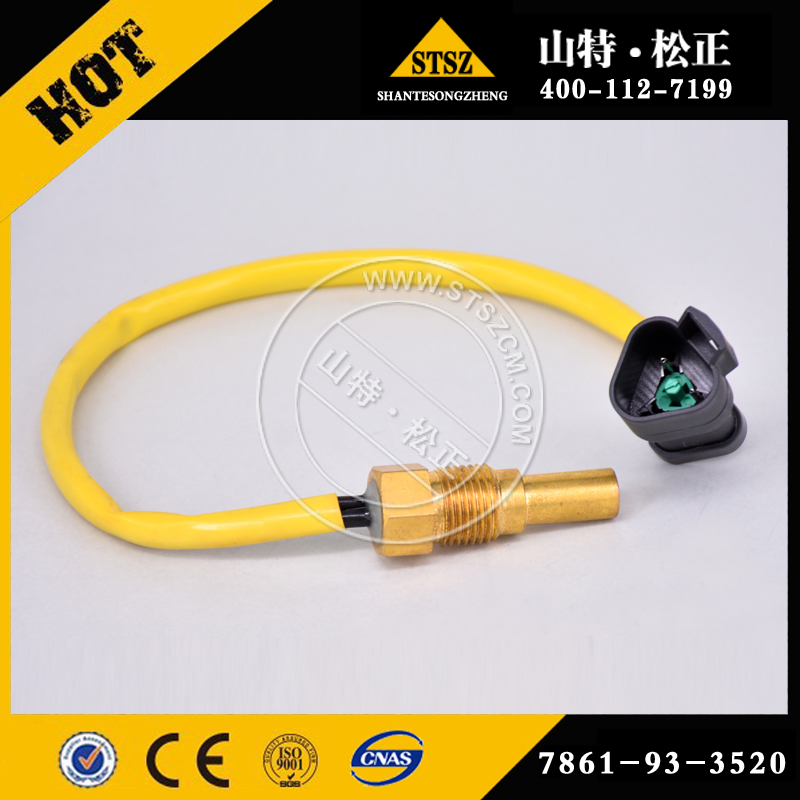Weekly share with you all kinds of excavator maintenance technical failure! It's getting hotter this weekend at the summer solstice. All projects are on schedule to reduce the impact of the epidemic, but the summer seems to be very unfriendly to the excavator. There are many projects in summer, which is the season of frequent failure of excavators. "three high" is the common fault of excavator in summer construction, and it is the main factor leading to failure. Plane Friends should pay special attention! The temperature of water tank is too high, the temperature of water tank is too high. The "hot pot" affects the normal heat dissipation of the engine, and then causes the high temperature expansion deformation of the engine parts, such as the Piston and the piston ring to be blocked by the heat expansion, at the same time, the high temperature increases the oxidation of the engine oil and speeds up the wear of the moving parts. To prevent "boiling" , the old drivers have their own tricks, some people modify the water tank, some people add air-cooling, some people simply remove the hood of the water tank. In fact, on the premise of not destroying the beautiful, the correct use of antifreeze can effectively avoid the pot. Antifreeze has two characteristics: Low freezing point and high boiling point. Therefore, it can not only ensure the normal operation of the vehicle system in winter, but also prevent the boiling of cooling water in summer. Antifreeze antirust, anti-corrosion function can slow down the aging of the whole cooling system, anti-scale function can prevent scale clogging circulation pipeline. When the temperature of the hydraulic oil is too high, the viscosity, lubricity and wear resistance of the oil will decrease obviously, not only will the leakage increase, but also the oil film of the sliding parts will be destroyed, which will aggravate the wear of the hydraulic components, therefore, summer should choose a slightly higher viscosity of hydraulic oil. The normal temperature of hydraulic oil is between 30 °C and 55 °C. when the temperature of hydraulic oil is continuously increased, the hydraulic components will expand according to different coefficients, and the Jam may occur. Prevention of high temperature hydraulic oil by daily inspection and maintenance, such as regular to the radiator dust, cleaning, can maintain heat dissipation performance. Grease temperature is too high, grease temperature is too high, will lead to greases softening, reduced adhesion, easy to lose. At this point, the working device and rotary device will be due to poor lubrication lead to high temperature, wear, noise and other "monopole. ". The main reason of grease failure is the shrinkage of Gel and the evaporation loss of base oil. High temperature is the main reason of grease evaporation, oxidation and condensation. Therefore, the summer must choose high-temperature performance good grease, not only to maintain high temperature adhesion, but also to ensure that the failure process is slow. In summer, when the vegetation is lush and the birds and insects are active, it's hard to guarantee that no insects will take the risk of entering the car, no willow Catkins will stick to the water tank, and no dead branches or dead leaves will be stuffed into the radiator, this is caused by high-temperature engine, high-temperature deterioration of hydraulic oil, air-conditioning refrigeration bad hidden danger. Moreover, some "old" excavator, water tank and radiator at the hood, sponge damage or fall off, resulting in abnormal fan suction, may lead to poor heat dissipation. Summer is one of the busiest periods for construction, and also one of the highest rates of return. At this point, users do not miss due to equipment failure, do not pay for small profits and expensive maintenance costs. "You can never be too careful" . Paying attention to simple details, operating habits and routine maintenance is the only way to get through the summer.

